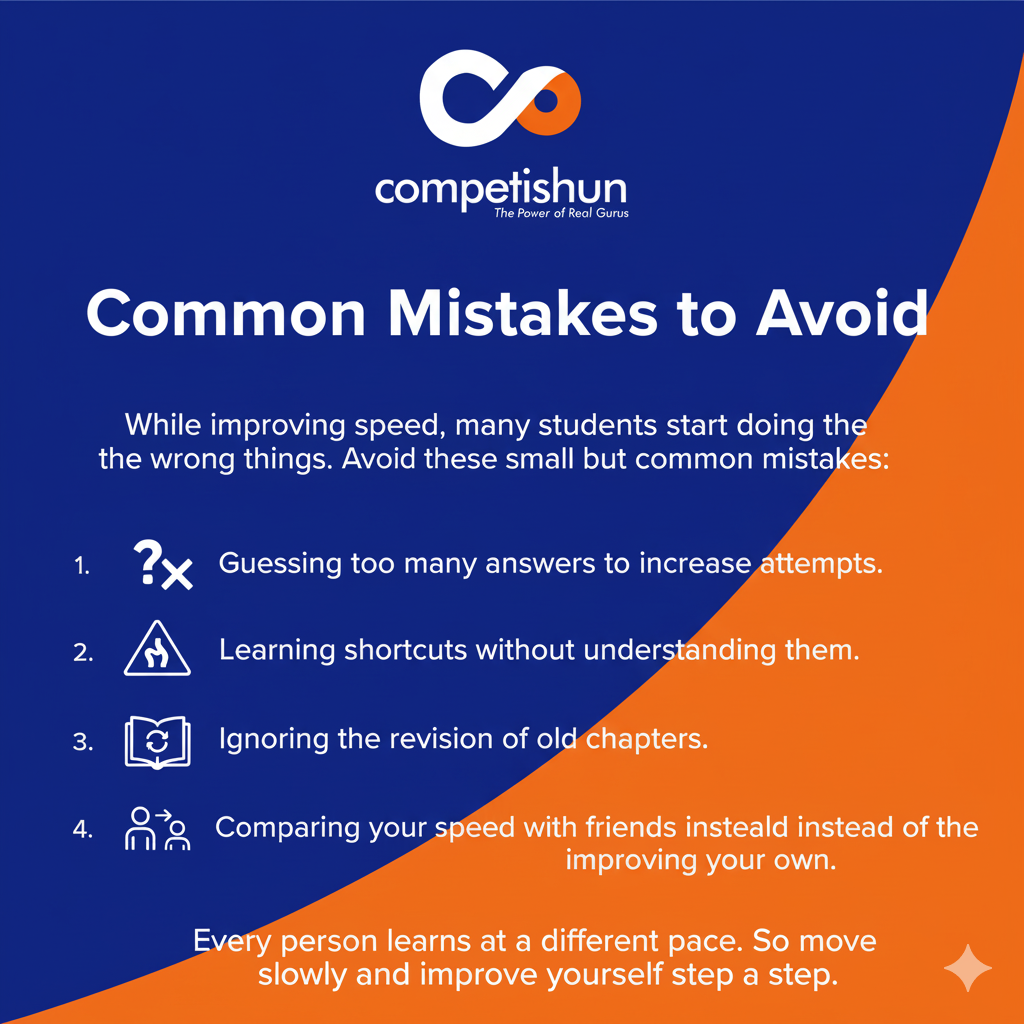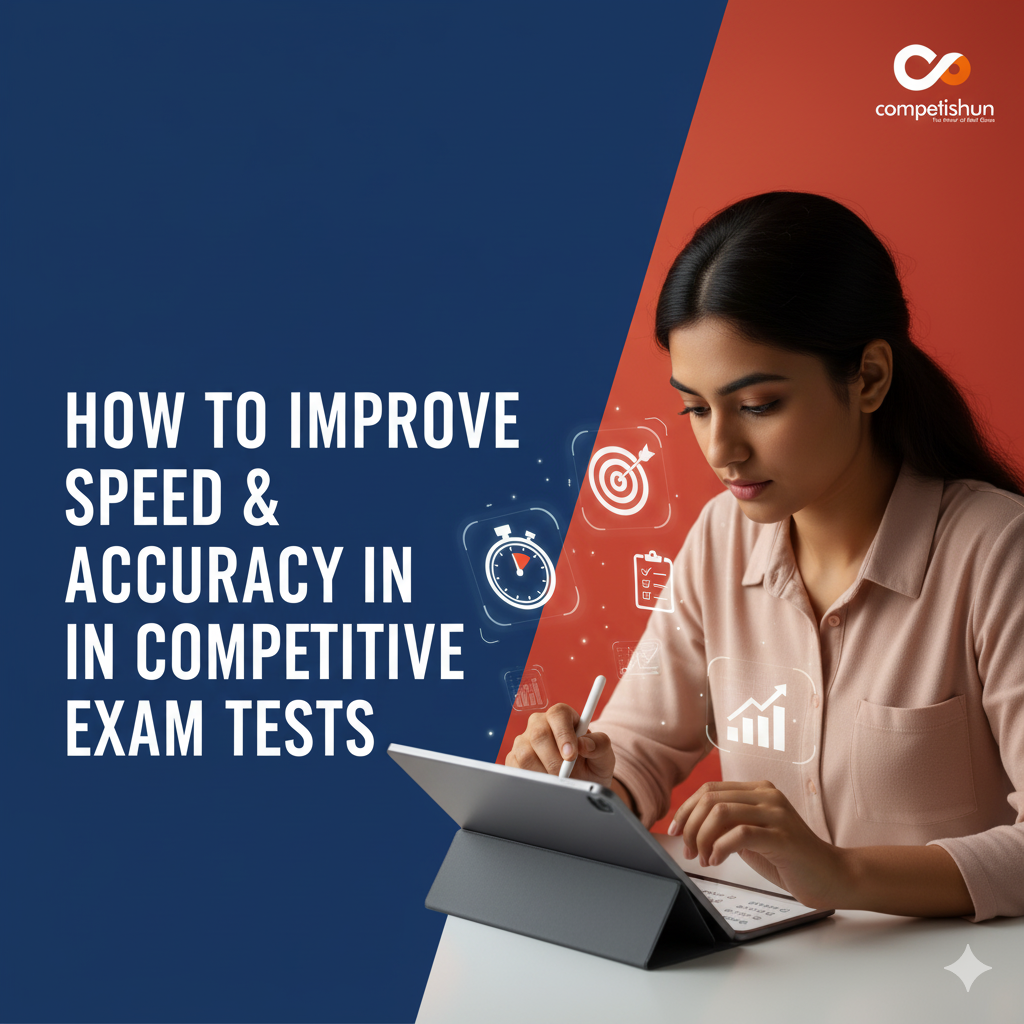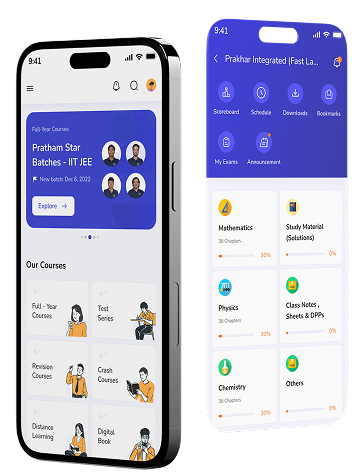Why Speed and Accuracy Are Important
Many students study well and know all the answers, but when exam day arrives, they make minor mistakes or struggle to complete the paper on time. This happens because they focus only on studying, but not on speed and accuracy.
Speed means how fast you can solve questions. Accuracy means how many of your answers are correct. Both matter equally. If you are fast but wrong, your marks go down. If you are slow but correct, you lose time. So the goal is to stay balanced, not too fast, not too slow, but steady and correct.
In this guide, I will explain simple and real ways to improve your speed and accuracy. I will not tell you big theories, only practical steps that you can start today.
Understanding the Real Problem
Before learning how to improve speed and accuracy, you should understand what usually goes wrong. Many students face the same issues, such as:
- Not practicing with time.
- Forgetting formulas during the exam.
- Getting stuck on one question for too long.
- Feeling nervous during the test.
- Not checking where time is getting wasted.
Once you know what’s stopping you, it becomes easy to fix it.
3. How to Improve Speed and Accuracy Step by Step
Let’s move slowly and talk about what you can do every day to get better.
1. Practice With Time Every Day
Always use a timer when you study. If you are solving 20 questions, set a time limit. Try to finish a few minutes early. This helps your brain work faster and stay focused. Over time, you will see that your natural speed increases without feeling rushed.
2. Understand Concepts Clearly
Many students try to solve fast, but forget that without a clear understanding, speed never improves. Take some time to learn your basics properly. When you understand a topic well, you do not need to think too much during the exam, and that saves time.
3. Learn to Skip and Return
Sometimes, one question takes a lot of time. Don’t stay stuck on it. Move to the next one and come back later if you have time left. This small habit can save several minutes and keep your confidence high.
4. Keep Notes and Short Tricks Handy
You must write down important formulas, steps, and short tricks on small sheets and revise them every morning or before you start a mock test. This will keep everything fresh in your mind, and it will reduce thinking time during the paper.
5. Analyze Your Mock Tests
After every test, spend some time understanding your mistakes. Which section took more time? Where did you make silly errors? Try to fix those in your next test. This is how toppers improve by learning from their own mistakes.

6. Practice Mental Calculations
For exams that include math or reasoning, practice doing small sums in your head. Learn squares, cubes, and percentage values. You don’t need a calculator for everything. With regular mental math, your solving speed will become much better.
7. Read Questions Slowly but Once Only
Many students read a question too fast, miss a word, and make mistakes. Read the question carefully once, understand it fully, and then solve it. This saves time and increases accuracy together.
8. Stay Calm During the Exam
Your mind works faster when it is calm. If you panic, even easy questions feel hard. So take deep breaths, stay positive, and keep moving forward one question at a time.
A Simple Daily Practice Plan
You don’t need a big schedule. A simple and steady plan works best.
- 2 hours for studying and revising your main topics.
- 1 hour for solving questions with a timer.
- 1 hour for mock tests or practice papers.
- 30 minutes for checking your mistakes and writing short notes.
Do this regularly. Even 3–4 weeks of this routine will show visible improvement. Remember, the goal is not to study all day, but to study with focus and control your time.
Common Mistakes to Avoid
While improving speed, many students start doing the wrong things. Avoid these small but common mistakes:
- Guessing too many answers to increase attempts.
- Learning shortcuts without understanding them.
- Ignoring the revision of old chapters.
- Comparing your speed with friends instead of improving your own.
Every person learns at a different pace. So move slowly and improve yourself step by step.

Helpful Tools and Simple Resources
You don’t need big coaching tools to improve. Just a few simple habits can help a lot.
- Use a stopwatch or timer app to track time while solving.
- Practice online mock tests available for free.
- Keep one notebook only for your mistakes. Write every question that took more time or went wrong. Revise this notebook weekly.
Small tools like these will keep you disciplined, and they will help you see progress clearly.
Train Like It’s the Real Exam
Whenever you take a mock test, sit exactly like you would in the real exam. Keep your phone away. Don’t take breaks in between. Treat it seriously.
When you do this regularly, then your body and mind get trained for real exam conditions. On the final day, you will feel calm and confident because your brain already knows how to handle time and pressure.
Last Things Before Going
Improving speed and accuracy is not about learning new tricks every day. It’s about small and regular practice. Even 2 hours of focused practice can be better than 6 hours of distracted study.
Take one topic at a time. Solve slowly first, then increase your pace a little by little. You will see results within a month.
Always remember speed comes from practice, and accuracy comes from focus.
You don’t need to rush. Just stay steady, keep practicing, and you will reach your goal naturally.

